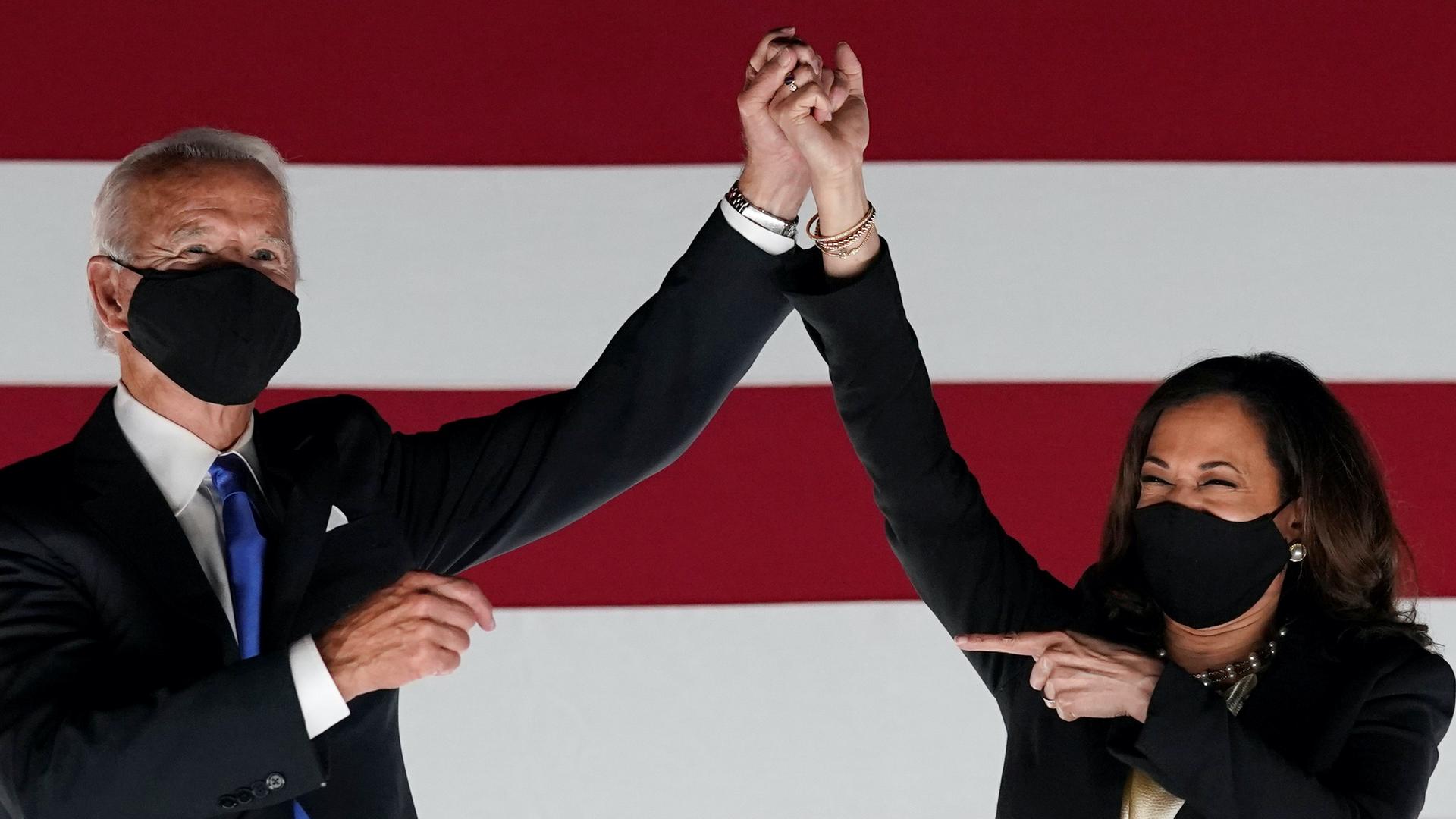Biden-Harris ticket highlights historic stance on climate and environmental justice
Vice President Joe Biden’s choice of Sen. Kamala Harris as his running mate is historic. Harris is the first Black woman and Asian American on a major US presidential ticket,
But their pairing is historic in another way, too: On issues of climate and environmental justice, Biden-Harris is one of the most progressive presidential tickets this country has ever seen, thanks in part to substantial pressure from the party’s left for strong climate action.
Related: ‘The mother of all injustices is climate change,’ says former diplomat and climate change leader
The Biden campaign unveiled a $2 trillion climate plan in July, which aims for a carbon-free electric power grid by 2035, among other ambitious goals. And even more recently, Sen. Harris introduced two bills focused on environmental justice.
Vice President Biden praised Harris for her environmental record at a joint event on Aug. 12.
“As attorney general of the largest state in the country, Kamala took on big oil, who wanted to pollute without consequences,” he said. “The Biden-Harris administration is going to meet the climate crisis, protect the health of the American public. Along the way we are going to deliver jobs — good-paying jobs.”
“When it comes to the environment and…public health, we have clear champions who care so deeply about these issues and who get how much of the climate crisis is connected to racial injustice,” said Tiernan Sittenfeld, senior vice president of government affairs for the League of Conservation Voters, of the Biden-Harris ticket.
Related: How Indian Americans are reacting to Kamala Harris as Joe Biden’s VP pick
“We see how the current administration is ignoring science across the board. They’re not listening to the experts,” she said. “Yet we contrast that with Vice President Biden and Sen. Harris, who are going to trust the experts, who believe in science, who will do what is in the interest of our environment and our health, and fight for climate justice at every opportunity.”
Harris started an environmental justice unit at the San Francisco District Attorney’s Office to pursue environmental crimes, which disproportionately impact Black, Indigenous and people of color, Sittenfeld notes. And as a US senator, she’s been the leader on the Clean School Buses Act, which aims to electrify the nation’s school buses.
“[The League’s] CHISPA program has been working for years in communities to push for electric school buses because the diesel pollution from buses has many negative health impacts on our kids, especially on children of color,” Sittenfeld said.
Harris is also the lead sponsor of the Climate Equity Act, which would give front-line communities and communities of color an important voice in policymaking that centers on environmental justice, Sittenfeld added.
“So, I would say it’s clear that environmental justice is a passion for Sen. Harris,” Sittenfeld said. “And it’s also something that has been important to Vice President Biden. He had put out a climate plan that was very strong in June of 2019. He then built on that plan, with additional climate commitments that are more ambitious and also [have] additional environmental justice commitments.”
Related: The Paris climate problem: A dangerous lack of urgency
Sen. Harris and Vice President Biden also share the goal of “phasing down the burning of fossil fuels around the world as quickly as possible,” Sittenfeld said.
“We know that they are rock solid, 100% committed to addressing the climate crisis and extremely focused on climate solutions,” she said. “That’s why they’re talking about them so much on the campaign trail. That’s why they’re going to lead on them from day one.”
Sittenfeld has a message for voters who supported some of the more progressive candidates for the Democratic nomination, such as Sen. Bernie Sanders.
“The stakes have truly never been higher,” she said. “From conversations with the vice president, from conversations with Sen. Harris, I know that they care deeply about these issues. I know that they’re going to prioritize them, and their leadership could not be in starker contrast with the most anti-environment administration we have ever had.”
“I don’t think any of us want to wake up on Nov. 4 and feel like if we had only voted, if we’d only made some more phone calls to swing voters, or if we’d only sent a few more texts. This is it: The 2020 elections are absolutely our last, best chance to confront the climate crisis, and it is going to require all of us being all in to make that happen.”
This article is based on an interview by Jenni Doering that aired on Living on Earth from PRX.
Our coverage reaches millions each week, but only a small fraction of listeners contribute to sustain our program. We still need 224 more people to donate $100 or $10/monthly to unlock our $67,000 match. Will you help us get there today?
